When choosing between metal and wooden soap molds, you'll find some key differences. Wooden molds provide better insulation during saponification, while metal molds cool soap faster. You'll need to line wooden molds, but they're more durable and won't react with lye like most metals can. Wooden options offer more design flexibility and easier customization, though they require more maintenance. Stainless steel remains the only metal safe for soap making. Understanding these distinctions will help you make the best choice for your soap crafting journey.
Material Properties and Heat Conductivity

When comparing metal and wooden soap molds, their material properties and heat conductivity greatly impact the final product.
You'll find that wooden molds provide superior insulation during the saponification process, which helps maintain the heat needed for achieving the gel phase.
While metal molds have higher heat conductivity, they'll cool your soap faster, which can affect its texture unless you add extra insulation.
Metal molds' high conductivity means faster cooling times, requiring additional insulation to prevent texture issues in your finished soap.
You'll need to take into account that most metal molds, except stainless steel, can react with lye and release dangerous hydrogen gas.
Though stainless steel offers excellent durability, it won't give you the same insulation benefits as wooden molds.
Keep in mind that wooden molds require lining with freezer paper to prevent sticking, but they're a safer choice for soap making despite needing more maintenance to maintain their shape.
Durability and Long-Term Investment

Although both types of molds serve their purpose, wooden soap molds offer superior durability and value as a long-term investment.
You'll find that wooden molds effectively withstand chemical reactions during soap-making without warping or degrading, unlike their metal counterparts that may corrode when exposed to lye.
While metal molds might seem more economical initially, their shorter lifespan and susceptibility to damage often lead to higher costs over time.
High-quality wooden molds, with proper maintenance, can last considerably longer. Their natural insulation properties enhance the saponification process, contributing to better soap quality.
You'll also appreciate that wooden molds are easier to repair or modify when needed, making them a more sustainable choice.
When you consider the durability and versatility of wooden molds, they're clearly the smarter investment for serious soap makers.
Maintenance Requirements and Care

Despite their durability advantages, wooden soap molds require more attentive maintenance compared to metal ones. You'll need to line them with freezer paper before each use and guarantee thorough cleaning and drying to prevent moisture absorption.
Keep your wooden molds away from raw soap for extended periods to avoid warping.
Metal molds demand different care considerations. If you're not using stainless steel, you'll need to inspect regularly for corrosion, especially since they can react with lye.
Store them away from high humidity environments to maintain their longevity.
For both types of molds, avoid harsh cleaning methods that could compromise their integrity.
Safety Considerations and Chemical Reactions

Safety in soap making extends beyond basic maintenance practices to the critical chemistry involved. When working with sodium hydroxide, you'll need to carefully consider your mold material choices to prevent dangerous lye reactions. While stainless steel provides a safe option for your soap making endeavors, other metals can create hazardous chemical reactions.
| Material Type | Safety Level | Chemical Reaction |
|---|---|---|
| Stainless Steel | High | No reaction with lye |
| Other Metals | Dangerous | Releases hydrogen gas |
| Wood | Safe | No reaction with lye |
Wooden molds offer a safe alternative, requiring only proper lining for successful unmolding. Remember to prioritize proper ventilation and wear protective gloves when handling lye solutions. These safety considerations aren't just guidelines – they're essential practices that protect you from potential chemical hazards during the soap-making process.
Design Flexibility and Production Efficiency

When choosing between metal and wooden soap molds, you'll need to weigh their distinct advantages in design flexibility and production efficiency.
Wooden molds offer superior design flexibility, allowing you to create custom shapes easily, while metal molds typically come with fixed designs. The insulating properties of wooden molds enhance the gel phase during saponification, potentially improving your production efficiency.
- Wooden molds require liners and regular maintenance but are lighter and easier to handle for large batches.
- Metal molds offer non-stick surfaces for easier unmolding but can be heavier and more challenging to manipulate.
Both options present different durability aspects – wooden molds need proper care to prevent warping, while metal molds resist high temperatures and maintain their shape longer.
Consider your specific production needs when selecting between these options for best results.
Frequently Asked Questions
What Is the Best Material for Soap Molds?
You'll find silicone molds are your best choice for soap making. They're flexible, non-reactive, easy to clean, and don't need lining. Wood's also good but requires preparation, while metal can be dangerous.
Can You Use Metal Molds for Soap?
You can only safely use stainless steel metal molds for soap making. Don't use other metal types as they'll react with lye, creating dangerous hydrogen gas. Silicone or wooden molds are better alternatives.
How to Get Soap Out of Metal Mold?
Line your metal mold with parchment paper first. After 24 hours, tap the sides gently and use a silicone spatula to loosen edges. If it's stuck, briefly place the mold in warm water.
What Is the Best Wood for Soap Molds?
You'll find that untreated hardwoods like birch and maple are your best choices for soap molds. They're durable, provide good insulation during saponification, and won't impart unwanted scents into your soap.
In Summary
You'll find both metal and wooden soap molds have their merits based on your specific needs. If you're looking for durability and heat conductivity, metal molds are your best bet. However, if you want natural insulation and rustic charm, wooden molds won't disappoint. Consider your production volume, preferred design flexibility, and maintenance commitment when making your choice. Either way, proper care will extend your mold's lifespan.
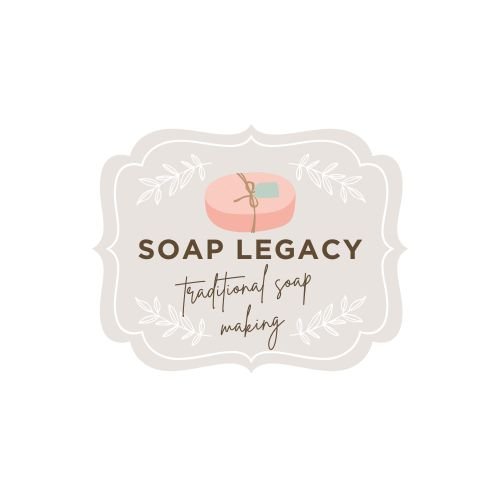
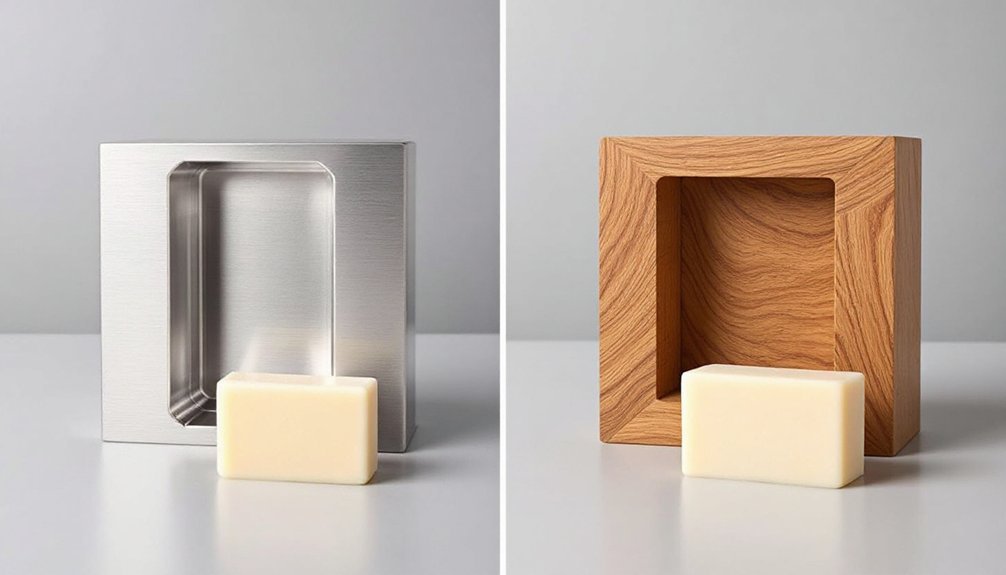
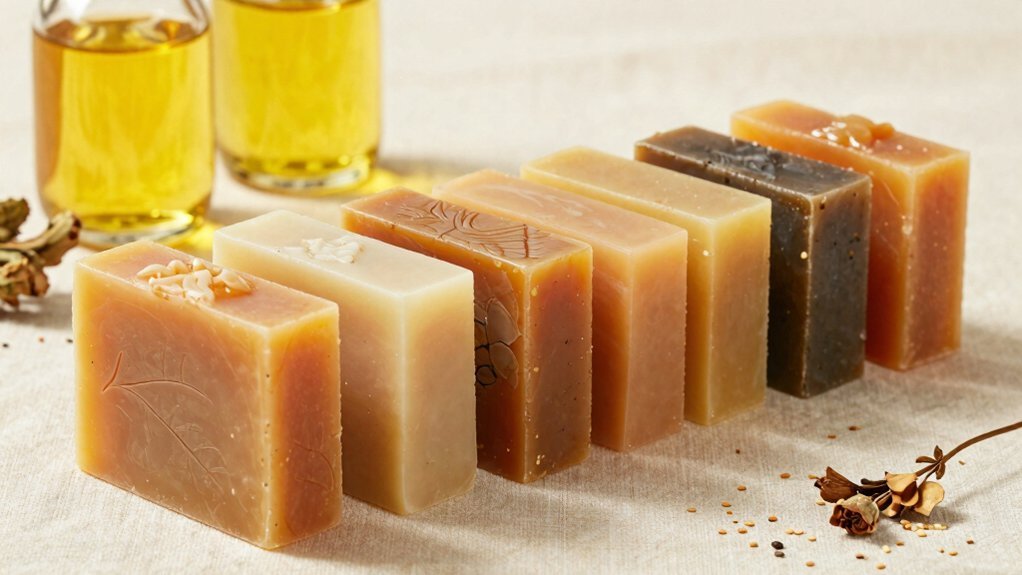
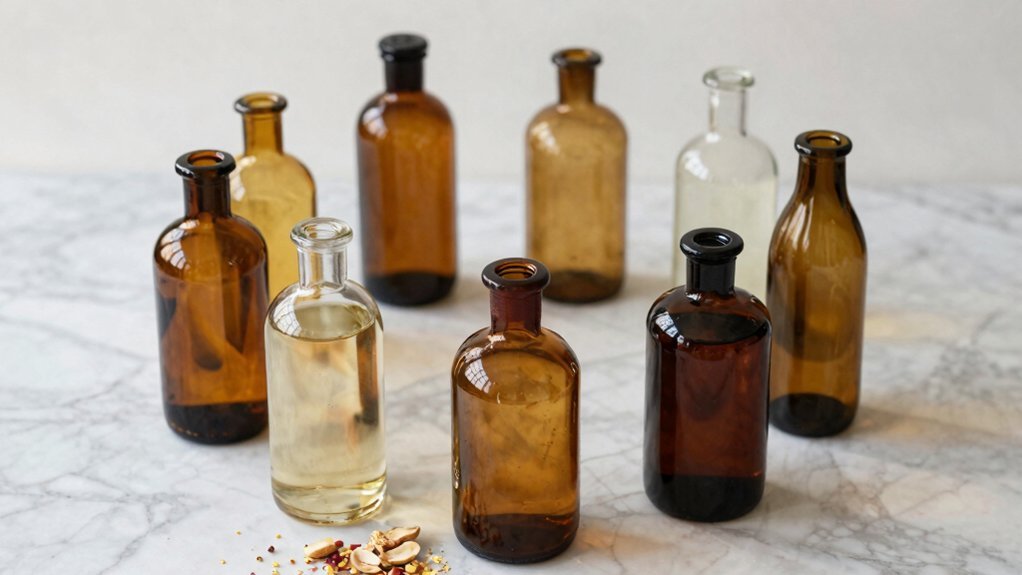
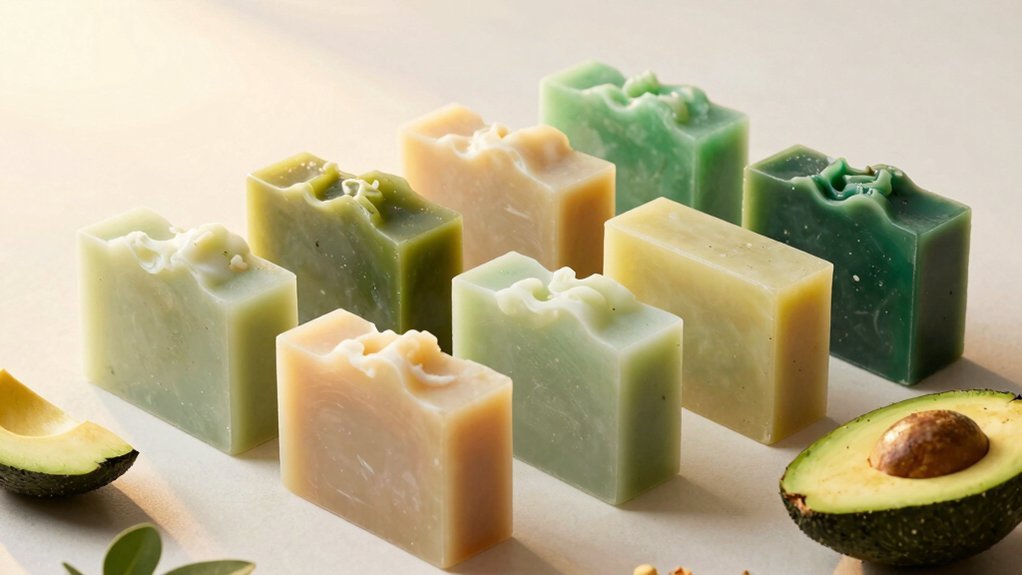
Leave a Reply